The Caucasian Chalk Circle 14
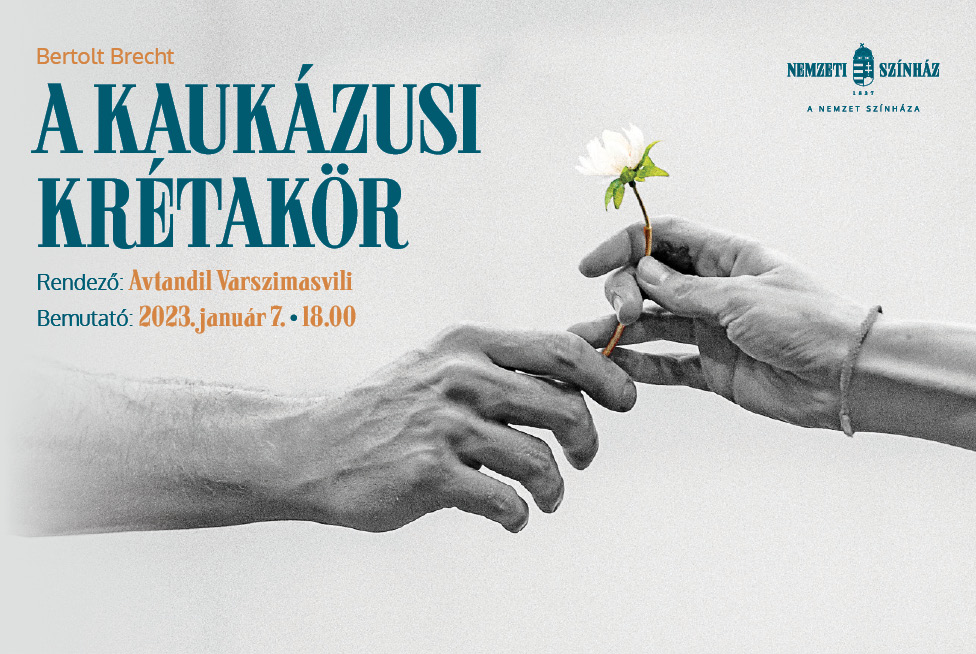
Hungary • National Theatre, Budapest
Director: Avtandil Varsimashvili
Performed in Hungarian. On MITEM with English subtitles
3 hours 15 minutes with 1 breaks.
who do well by them,
Children to motherly women
that they may thrive...'
The Caucasian Chalk Circle is one of Bertolt Brecht’s best-known plays, it was premiered in 1954 in Berlin. It is where Brecht’s concept of “epic theatre”, a fundamental feature of his dramaturgy, is most clearly demonstrated. The play is inspired by an ancient Chinese legend and King Solomon's parable in the Bible, in both of which women are subjected to what seems a cruel ritual motherhood test.
Brecht sets the plot in civil-war-torn Georgia, where the country’s governor, Georgi Abasvili, is assassinated in a coup staged by the Prince, while the city is set ablaze. Natella, the governor’s fleeing wife abandons her young son, who is taken in by the kind-hearted maid Grusha Vachnadze. From then on, she raises him as her own child, taking on all kinds of hardship and even breaking her beau Simon Chachava’s heart. However, the governor’s wife returns after the war to reclaim her biological child. The solution to this seemingly unsolvable dilemma is left to Azdak, the judge of the community, who tries to adjudicate in the dispute between the two women using an ancient test known as the “Caucasian chalk circle”.
Is tender love stronger than blood ties? Can justice be done between two kinds of maternal hearts? Brecht's popular play seeks answers to these painful moral questions.
“Any war, any loss can only be repaired by kindness”, says production director Avtandil Varsimashvili.
The Hungarian text was written by András Kozma using the translation of Ágnes Nagy Nemes and Gábor Garai
Kinga Katona
Roland Bordás
Zsolt Trill
Sándor Berettyán
Réka Bubik e.h.
László Fehér
József Szarvas
Attila Kristán
Nelli Szűcs
Péter Herczegh
József Varga
Márton Pallag
József Kovács S.
Ágota Szilágyi
Lili Lujza Battai
István Madácsi
Avtandil Varsimashvili
Gia Kancseli
András Kozma
Ranáta Gyöngyösi
Orsolya Strack
Krisztián Ködmen
Gábor Dobos
István Géczy
Péter Kernács
Avtandil Varsimashvili
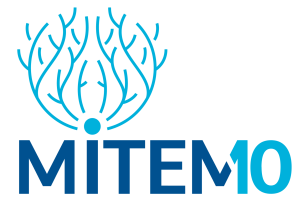

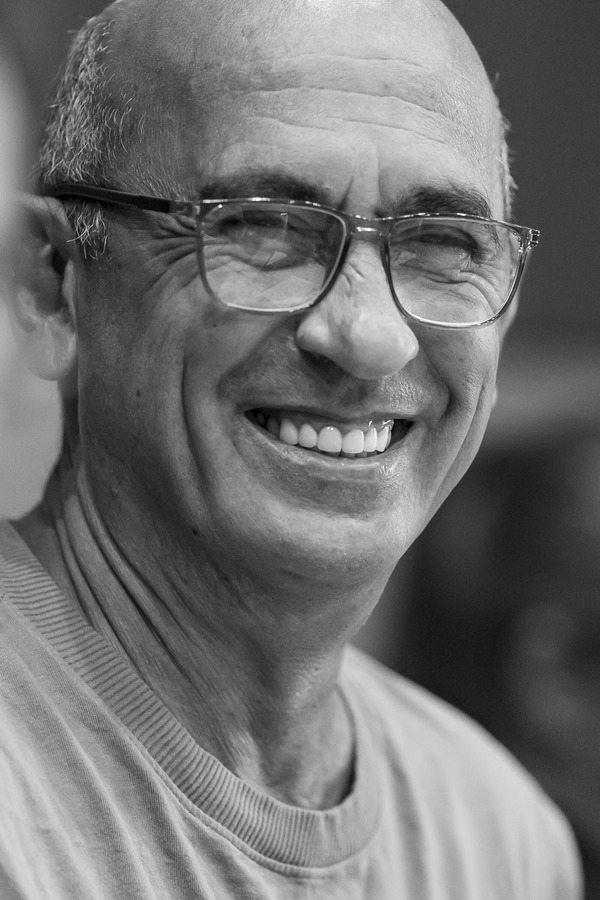
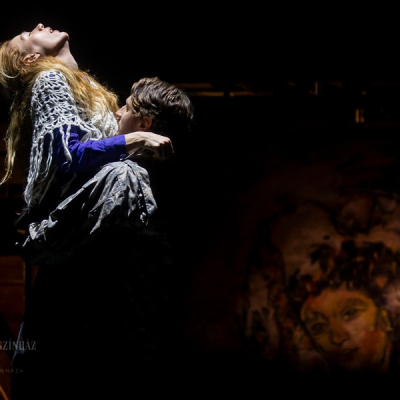
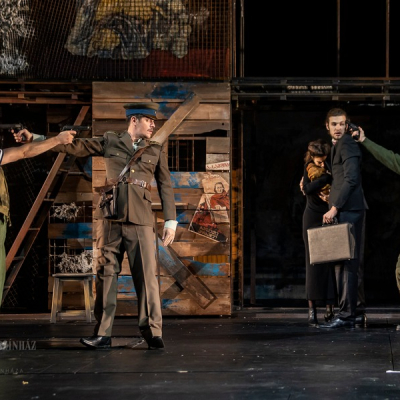
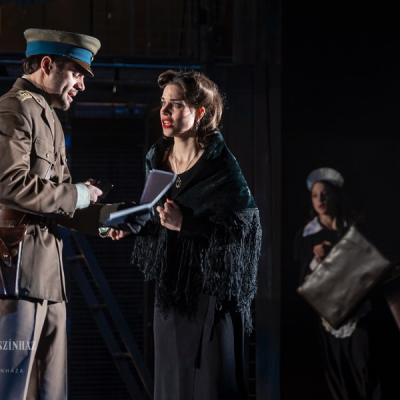
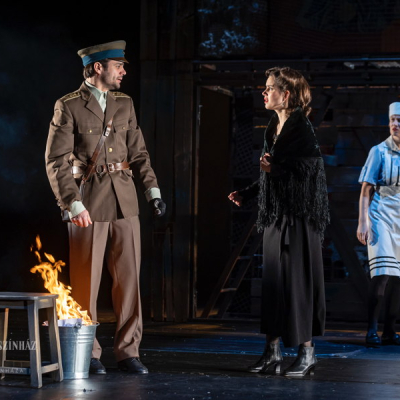
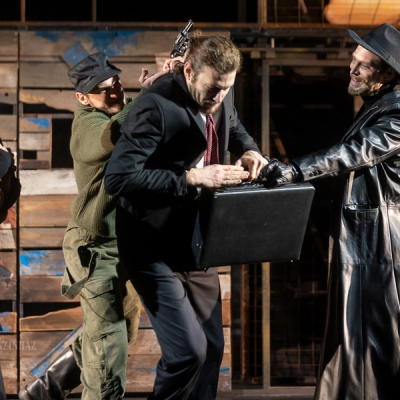
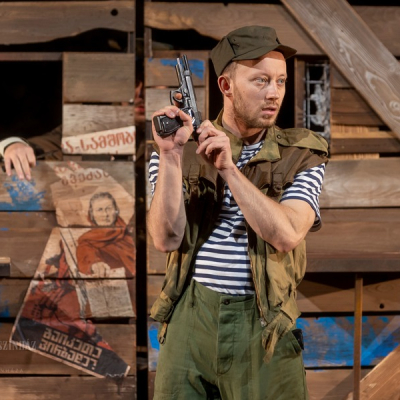
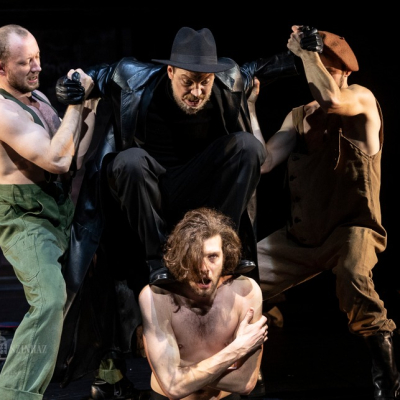
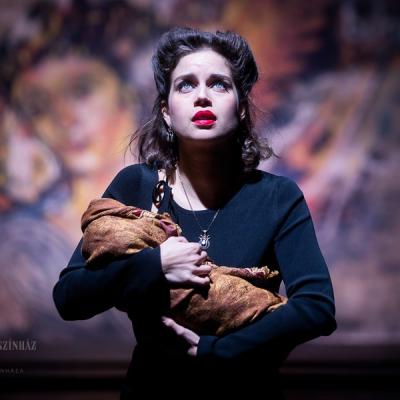
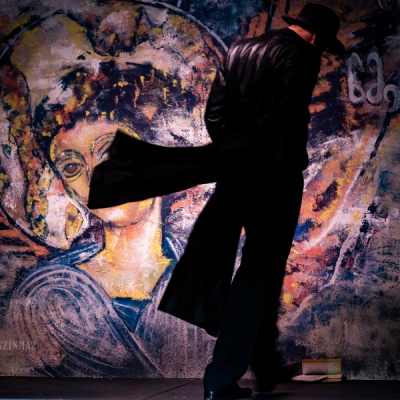
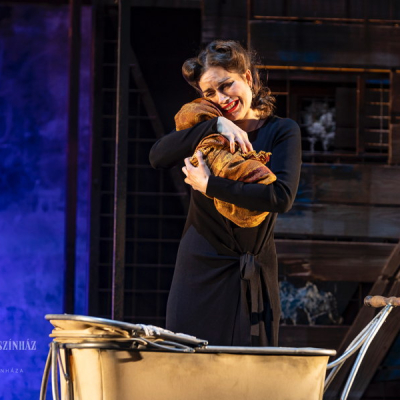
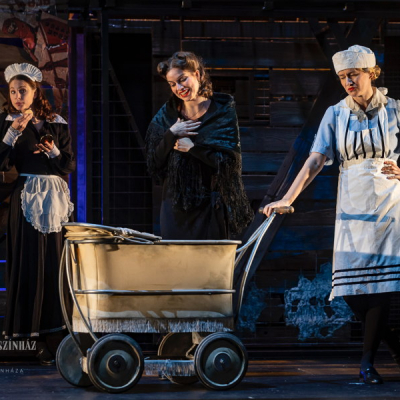
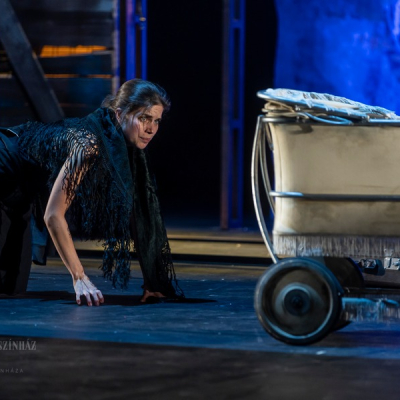
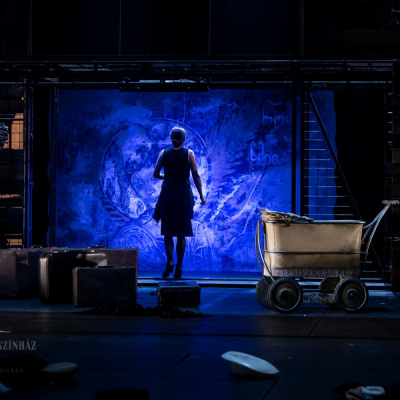
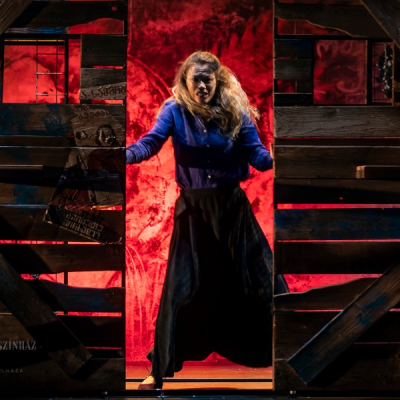
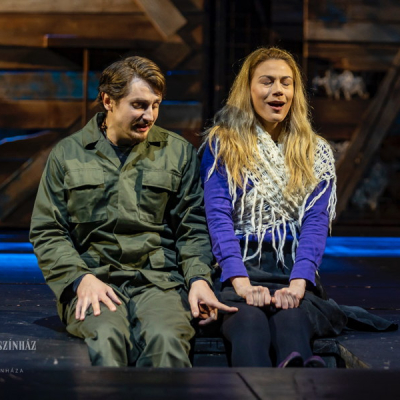
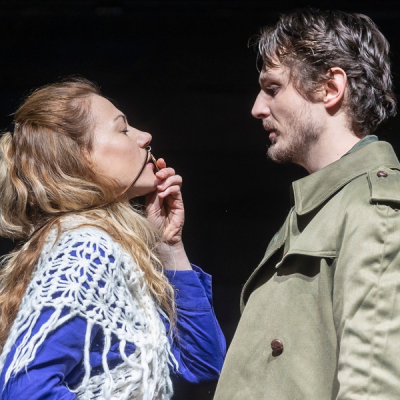
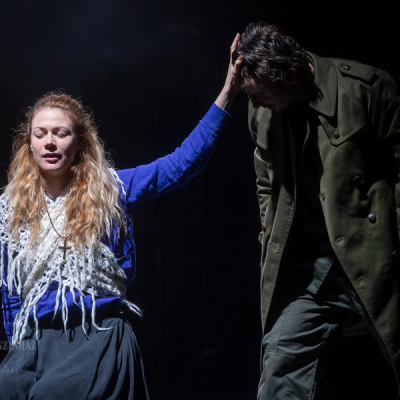

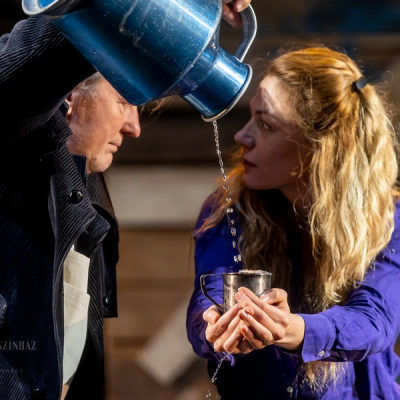


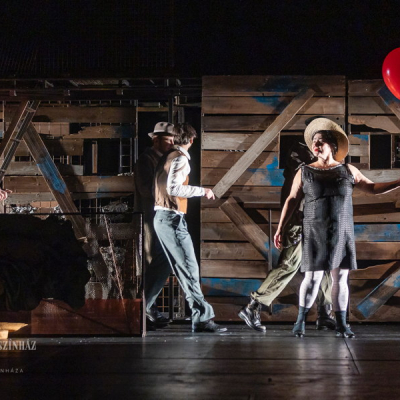
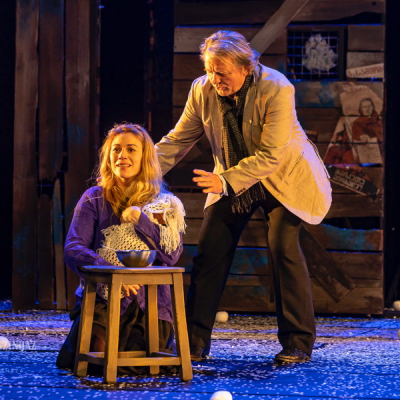
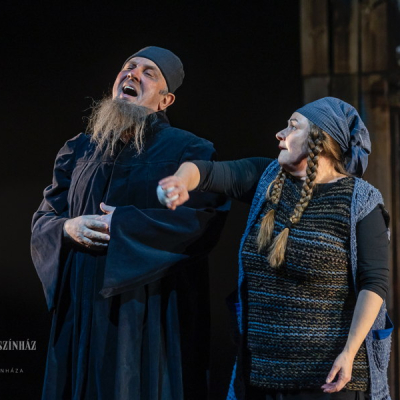
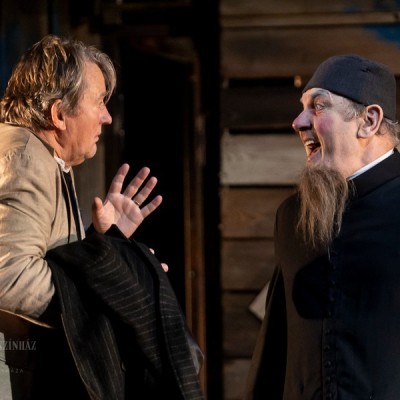
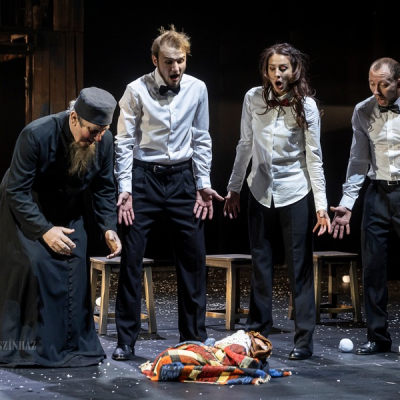
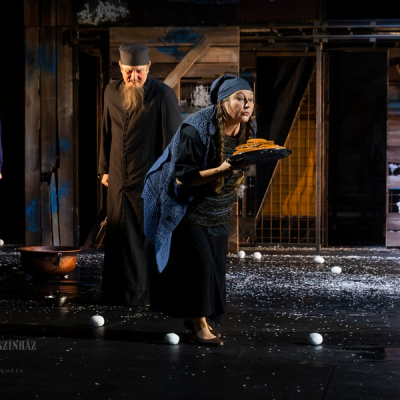
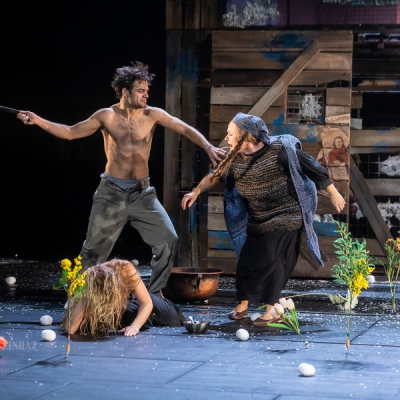
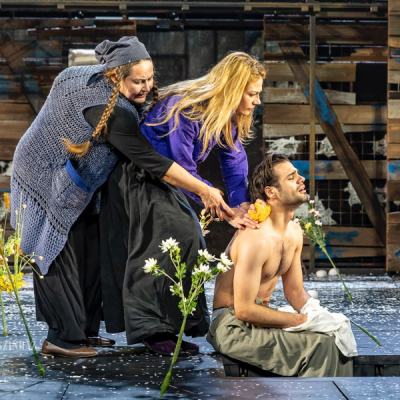
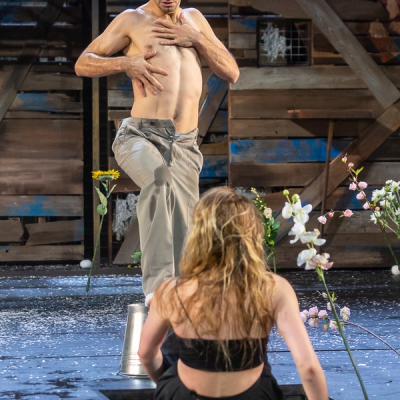
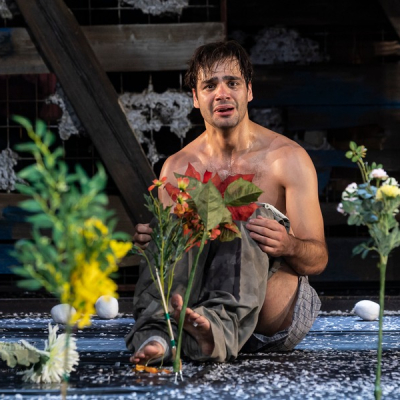
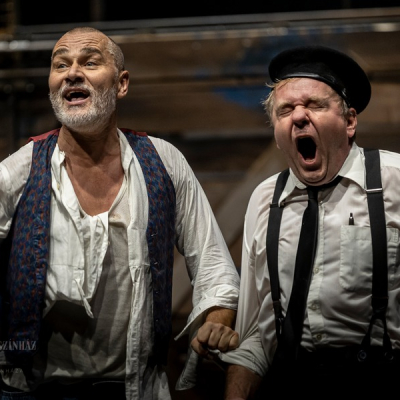
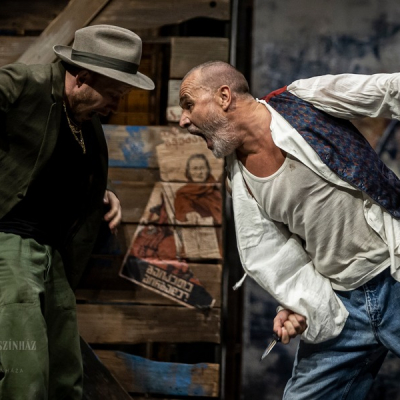
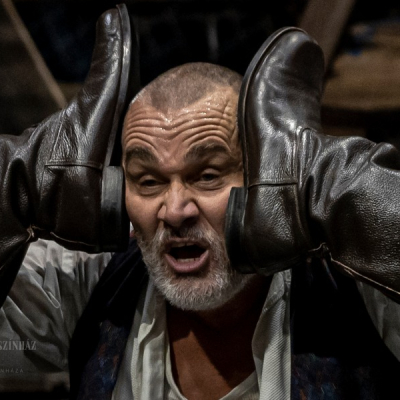
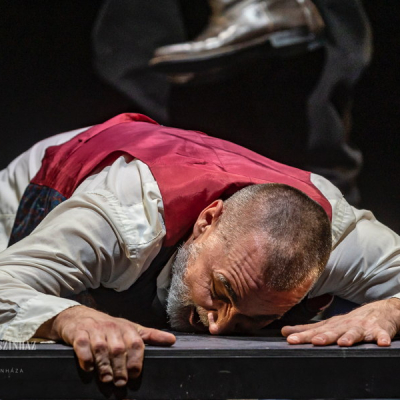
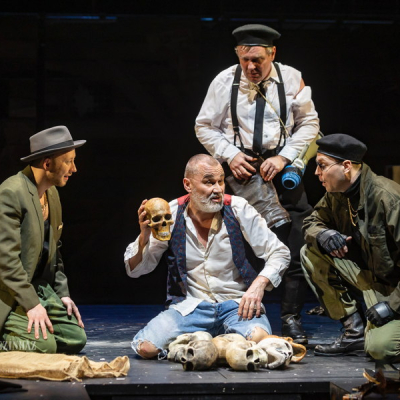
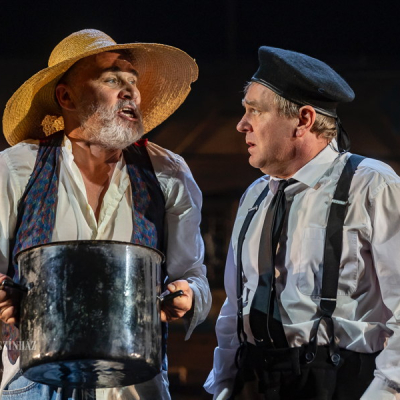
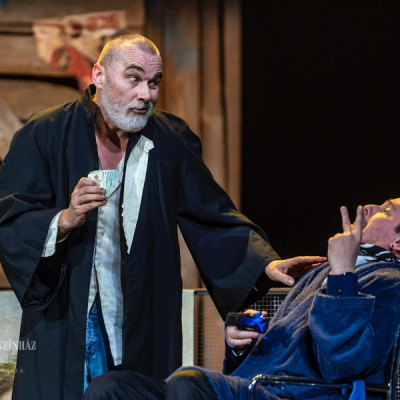
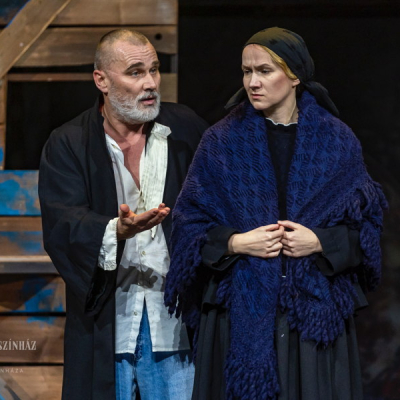
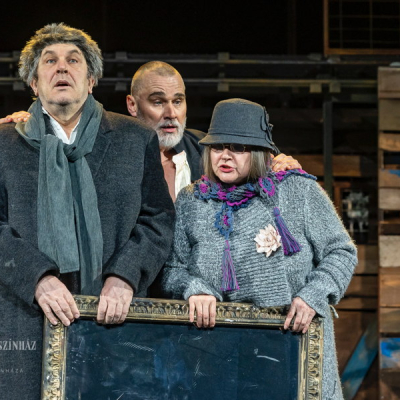
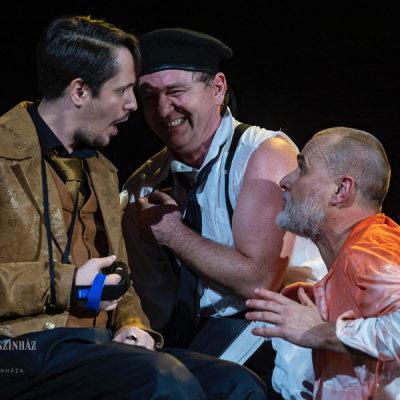
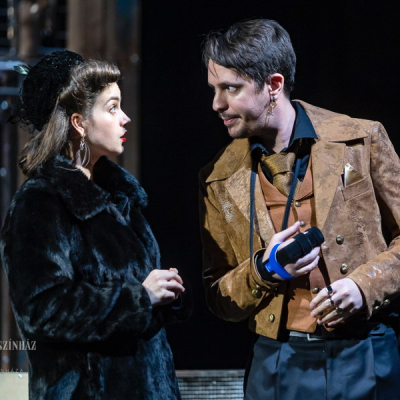
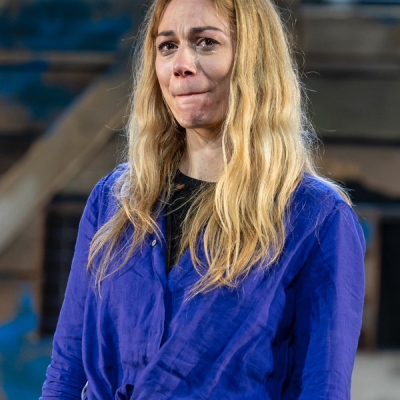
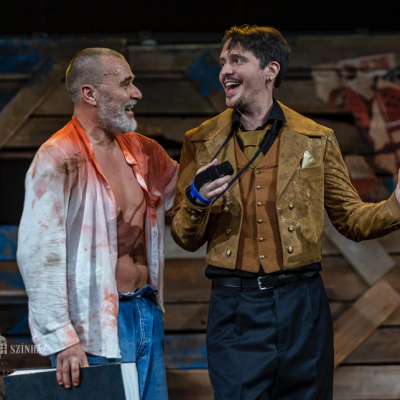
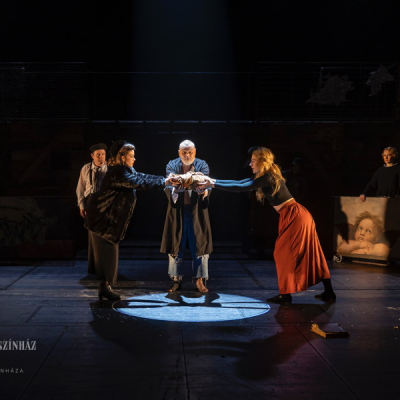
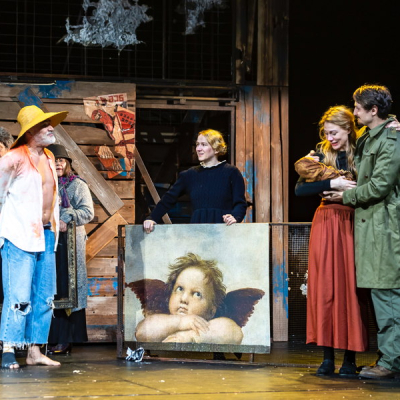
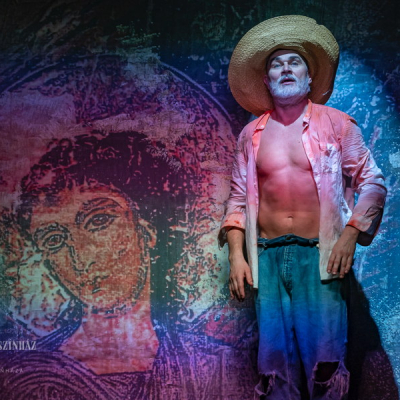
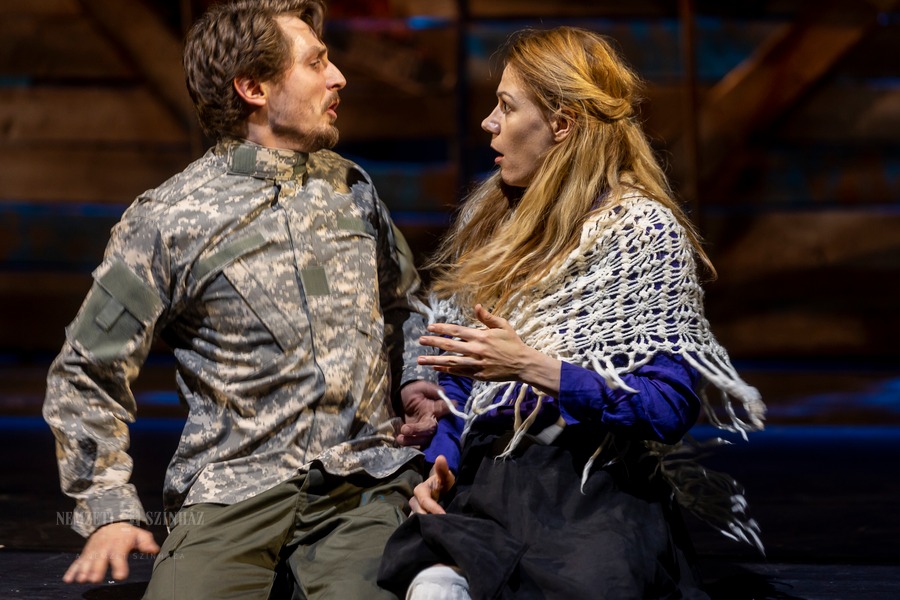









and Georgian folk music